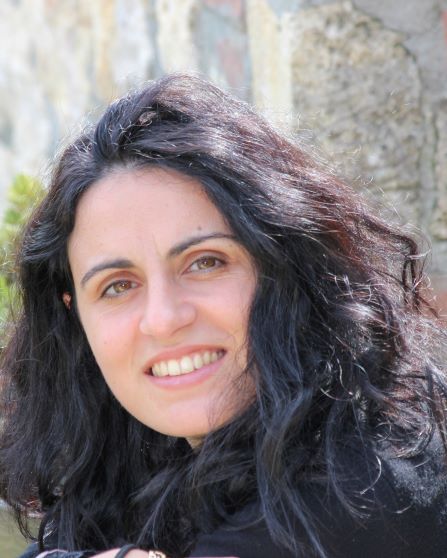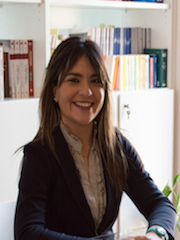Studying at the University of Verona
Here you can find information on the organisational aspects of the Programme, lecture timetables, learning activities and useful contact details for your time at the University, from enrolment to graduation.
Academic calendar
The academic calendar shows the deadlines and scheduled events that are relevant to students, teaching and technical-administrative staff of the University. Public holidays and University closures are also indicated. The academic year normally begins on 1 October each year and ends on 30 September of the following year.
Course calendar
The Academic Calendar sets out the degree programme lecture and exam timetables, as well as the relevant university closure dates..
| Period | From | To |
|---|---|---|
| Primo semestre (lauree) | Sep 19, 2022 | Jan 13, 2023 |
| Periodo generico | Oct 1, 2022 | May 31, 2023 |
| Secondo semestre (lauree) | Feb 20, 2023 | May 31, 2023 |
| Session | From | To |
|---|---|---|
| Sessione invernale (lauree) | Jan 16, 2023 | Feb 17, 2023 |
| Sessione estiva (lauree) | Jun 1, 2023 | Jul 14, 2023 |
| Sessione autunnale (lauree) | Aug 28, 2023 | Sep 22, 2023 |
| Session | From | To |
|---|---|---|
| Sessione autunnale | Dec 5, 2022 | Dec 7, 2022 |
| Sessione invernale | Apr 4, 2023 | Apr 6, 2023 |
| Sessione estiva | Sep 5, 2023 | Sep 7, 2023 |
Exam calendar
Exam dates and rounds are managed by the relevant Economics Teaching and Student Services Unit.
To view all the exam sessions available, please use the Exam dashboard on ESSE3.
If you forgot your login details or have problems logging in, please contact the relevant IT HelpDesk, or check the login details recovery web page.
Should you have any doubts or questions, please check the Enrollment FAQs
Academic staff
 adriano.cecconi@univr.it
adriano.cecconi@univr.it
 lorenzo.frattarolo@univr.it
lorenzo.frattarolo@univr.it
 federico.innocenti@univr.it
federico.innocenti@univr.it
 martina.menon@univr.it
martina.menon@univr.it
 francesca.rossignoli@univr.it
francesca.rossignoli@univr.it
 0444 393941 (Ufficio Vicenza) 0458028261 (Ufficio Verona)
0444 393941 (Ufficio Vicenza) 0458028261 (Ufficio Verona)
 massimo.tezza@univr.it
massimo.tezza@univr.it
Study Plan
The Study Plan includes all modules, teaching and learning activities that each student will need to undertake during their time at the University.
Please select your Study Plan based on your enrollment year.
1° Year
| Modules | Credits | TAF | SSD |
|---|
2° Year activated in the A.Y. 2023/2024
| Modules | Credits | TAF | SSD |
|---|
1 module among the following3° Year It will be activated in the A.Y. 2024/2025
| Modules | Credits | TAF | SSD |
|---|
2 modules among the followoing| Modules | Credits | TAF | SSD |
|---|
| Modules | Credits | TAF | SSD |
|---|
1 module among the following| Modules | Credits | TAF | SSD |
|---|
2 modules among the followoing| Modules | Credits | TAF | SSD |
|---|
Legend | Type of training activity (TTA)
TAF (Type of Educational Activity) All courses and activities are classified into different types of educational activities, indicated by a letter.
Type D and Type F activities
SOFT SKILLS
Find out more about the Soft Skills courses for Univr students provided by the University's Teaching and Learning Centre: https://talc.univr.it/it/competenze-trasversali
CONTAMINATION LAB
The Contamination Lab Verona (CLab Verona) is an experiential course with modules on innovation and enterprise culture that offers the opportunity to work in teams with students from all areas to solve challenges set by companies and organisations.
Upon completion of a CLab, students will be entitled to receive 6 CFU (D- or F-type credits).
Find out more: https://www.univr.it/clabverona
PLEASE NOTE: In order to be admitted to any teaching activities, including those of your choice, you must be enrolled in the academic year in which the activities in question are offered. Students who are about to graduate in the December and April sessions are therefore advised NOT to undertake extracurricular activities in the new academic year in which they are not enrolled, as these graduation sessions are valid for students enrolled in the previous academic year. Therefore, students who undertake an activity in an academic year in which they are not enrolled will not be granted CFU credits.
| years | Modules | TAF | Teacher |
|---|---|---|---|
| 1° 2° 3° | Ciclo tematico di conferenze: “Conflitti. Riconoscere, prevenire, gestire” - 2022/2023 | D |
Riccardo Stacchezzini
(Coordinator)
|
| 1° 2° 3° | Securitisation transactions - Focus on securitisations of OF NPL / NPE /UTP | D |
Michele De Mari
(Coordinator)
|
| 1° 2° 3° | Soft Skills Coaching Days - 2022/2023 | D |
Paola Signori
(Coordinator)
|
| 1° 2° 3° | The Fashion Lab - 2022/23 | D |
Caterina Fratea
(Coordinator)
|
| years | Modules | TAF | Teacher |
|---|---|---|---|
| 1° 2° 3° | Economic Thinking and Thesis Writing | D |
Marco Minozzo
(Coordinator)
|
| 1° 2° 3° | Job club | D |
Paola Signori
(Coordinator)
|
| 1° 2° 3° | Data Analysis Laboratory with R (Vicenza) | D |
Marco Minozzo
(Coordinator)
|
| 1° 2° 3° | Data Visualization Laboratory | D |
Marco Minozzo
(Coordinator)
|
| 1° 2° 3° | Python Laboratory | D |
Marco Minozzo
(Coordinator)
|
| 1° 2° 3° | Data Science Laboratory with SAP | D |
Marco Minozzo
(Coordinator)
|
| 1° 2° 3° | Advanced Excel Laboratory (Vicenza) | D |
Marco Minozzo
(Coordinator)
|
| 1° 2° 3° | Excel Laboratory (Vicenza) | D |
Marco Minozzo
(Coordinator)
|
| 1° 2° 3° | Piano di marketing 2022/23 | D |
Fabio Cassia
(Coordinator)
|
| 1° 2° 3° | Programming in Mathlab | D |
Marco Minozzo
(Coordinator)
|
| 1° 2° 3° | Programming in SAS | D |
Marco Minozzo
(Coordinator)
|
| years | Modules | TAF | Teacher |
|---|---|---|---|
| 1° 2° 3° | Business & predictive analytics for International Firms (with Excel Applications) - 2022/23 | D |
Angelo Zago
(Coordinator)
|
| years | Modules | TAF | Teacher |
|---|---|---|---|
| 1° 2° 3° | The Chartered Accountant as a business consultant | D |
Riccardo Stacchezzini
(Coordinator)
|
| years | Modules | TAF | Teacher |
|---|---|---|---|
| 1° 2° 3° | Project "B-EDUCATION: ideas that count" - 1 cfu | D |
Roberto Bottiglia
(Coordinator)
|
| 1° 2° 3° | Project "B-EDUCATION: ideas that count" - 2 cfu | D |
Roberto Bottiglia
(Coordinator)
|
Microeconomics (2023/2024)
Teaching code
4S00239
Academic staff
Coordinator
Credits
9
Also offered in courses:
- Microeconomics of the course Bachelor's degree in Business Innovation and Economics
Language
Italian
Scientific Disciplinary Sector (SSD)
SECS-P/01 - ECONOMICS
Period
Primo semestre (lauree) dal Sep 25, 2023 al Jan 19, 2024.
Courses Single
Authorized
Learning objectives
The aim of this unit is to provide students with appropriate tools for understanding how firms and consumers take their decisions and how markets are organized, which are fundamental skills to understand and analyze global markets. Upon completing the course, the student must demonstrate to know the organization of markets and the behavior of firms and consumers within such markets. The course will provide an evidence-based approach to microeconomics, presenting empirical and experimental evidence for each topic covered. Classic microeconomic theory will be compared and integrated with novel approaches regarding behavior of individuals and firms with a particular focus on behavioral economics.
Prerequisites and basic notions
Good knowledge of basic math is required especially with respect to derivatives and integrals.
Program
Textbooks: "Microeconomia" by Hal R. Varian, Cafoscarina, 2011; "Esercizi di microeconomia" by Giam Pietro Cipriani and Tamara Fioroni, Giappichelli, 2020. Additional material is available on the e-learning website.
Topics:
A. Consumer Theory:
• Budget constraint (Varian, Chapter 2).
• Preferences and indifference curves (Varian, Chapter 3).
• Utility (Varian, Chapter 4).
• Choice (Varian, Chapter 5).
• Demand (Varian, Chapter 6).
• Slutsky equation (Varian, Chapter 8).
• Exchange (Varian, Chapter 9).
• Choice under uncertainty (Varian, Chapter 12).
• Consumer's Surplus (Varian, Chapter 14).
• Market demand and elasticity (Varian, Chapter 15).
• Equilibrium (Varian, Chapter 16).
B. Production Theory:
• Technology (Varian, Chapter 18).
• Profit maximization (Varian, Chapter 19).
• Cost minimization (Varian, Chapter 20).
• Cost Curves (Varian, Chapter 21).
• Perfect competition in the short and the long term (Varian, Chapters 22 and 23).
• Monopoly (Varian, Chapter 24).
• Game theory (Varian, Cap. 28)
• Game theory applications (Varian, Cap. 29)
• Oligopoly (Varian, Chapter 27).
C. Market failures
• Externalities (Varian, Chapter 34)
• Public goods (Varian, Chapter 36)
• Asymmetric information (Varian, Chapter 37)
Bibliography
Didactic methods
There will be 6 hours per week of lectures and 2 hours per week of tutorials. Lectures will be recorded on Panopto.
Learning assessment procedures
All exams will be in written form. There will be an intermediate exam.
Evaluation criteria
The intermediate exam and the final exam have the same structure. They are composed by a multiple-choice part and an exercise part. The final grade will be the average between the grades of the two parts. The whole exam lasts 90 minutes.
Multiple choice
- The test is composed of 15 questions, 8 theory questions and 7 short exercises.
- +2 points per correct answer, 0 points for each unanswered question or wrong answer.
- In this part, it is necessary to accumulate at least 16 points; if you do not reach 16 points in this part the exam is failed.
Exercise part
- This part is composed of one exercise which needs to be solved on a sheet which must be handed in. We will evaluate both the correctness of the response and how the exercise was solved.
Criteria for the composition of the final grade
If you pass the intermediate exam with at least 18, the final exam will only be on thesecond part of the course contents. The final grade is the average between the intermediate and final exam. If you do not pass the intermediate exam, the final exam will be on the whole course contents.
Exam language
Italiano
Career prospects
Module/Programme news
News for students
There you will find information, resources and services useful during your time at the University (Student’s exam record, your study plan on ESSE3, Distance Learning courses, university email account, office forms, administrative procedures, etc.). You can log into MyUnivr with your GIA login details: only in this way will you be able to receive notification of all the notices from your teachers and your secretariat via email and soon also via the Univr app.






























